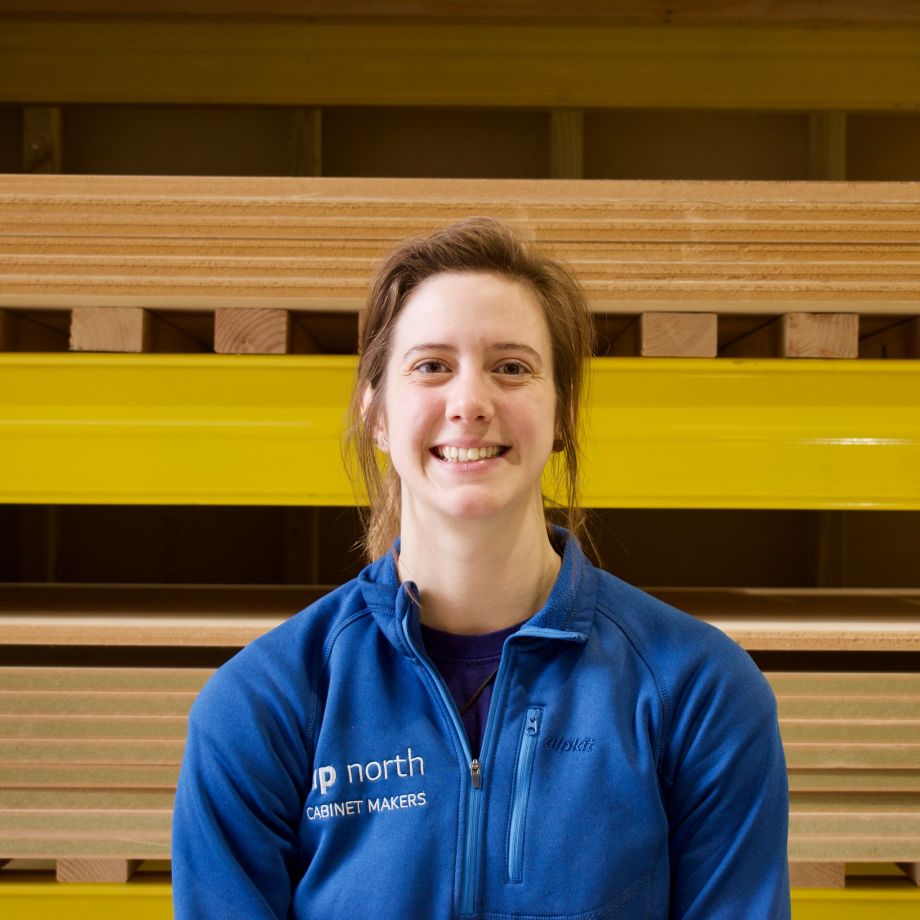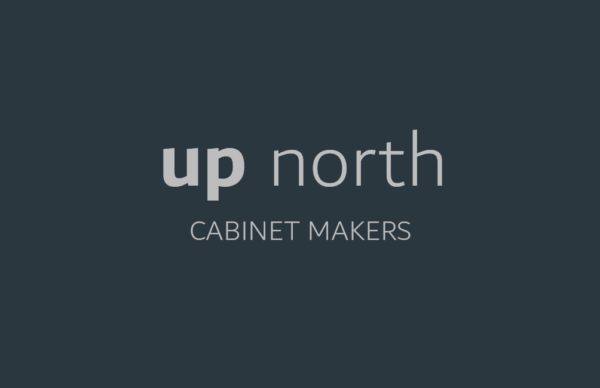Caroline Clarke, Furniture Designer, Up North Cabinet Makers

Furniture Designer and Maker
What does that involve, look like on a day-to-day basis?
I am lucky enough to have a job that varies massively day to day. I am predominantly based in the workshop; building bespoke cabinets and doors from scratch, and then spray finishing things in the spray booth in lovely matte paint of the customer’s choice. But then I also have a few days a week doing design work. This includes creating 3D models of new designs on the computer and producing photorealistic images of the proposed design. These are sent to the customer for them to see an accurate representation of what the finished job will look like. Once a customer would like to proceed, the designs get finalised down to the smallest detail so that they are ready to be manufactured in our workshop. Being involved with the whole process is really useful and allows me to understand different problems faced at different stages – it is also extremely rewarding being able to see a project from an early idea, right through to completion!
How did you get started working in STEM?
Both of my parents have been involved in the furniture industry for many years, so I naturally picked up skills and interest from them along the way, and I used to tinker in our workshop at home in my spare time. But leaving school, and even university, I wasn’t sure which direction I wanted to go down in my working life. It wasn’t until I had my first job, that I knew for sure that I wanted to be in a job that allowed me to use my hands, and have a mix of design work too, to allow me to have some creative input.
What qualifications did you take or gain along the way?
I left sixth form with 3 A-Levels, including 1 in Design and Technology, and went on to complete a Bachelor of Arts degree in Product and Furniture Design from Northumbria University. From here I did a 3-month internship in Seville, Spain which was organised through the Erasmus scheme linked to the university. During this internship I worked in an architect’s firm working on CAD (Computer-Aided Design). This helped me to get my first job as a Kitchen CAD Designer but after I recognised that I was missing being in the workshop, I took on an evening course at Sheffield College in Furniture Making. This allowed me to touch up on my skills that I had learnt at university 3 years prior, so that I had the confidence to apply for more hands-on roles.
Why do you love working in STEM?
I love the variety that it brings and the new challenges you face daily. I feel like in this industry you are always learning, which is so rewarding! There is also something extremely therapeutic about working with your hands and getting absorbed in the task in front of you.
What challenges have you faced in your career? And how have you overcome them?
I was denied entry to an internship that I originally wanted for a company in Prague who made bespoke furniture (which is when I ended up working in an architect’s firm in Spain instead). Their reasoning was literally because there was a lot of heavy lifting on the job, and they did not want to employ a woman into that role. This made me furious, and it left me questioning if this was going to be an unrealistic industry for me. But it also made me determined that I would prove this company, and others who think alike, wrong. So, I just used this as fuel to find the right job for me – and it’s paid off, I now work for an employer who treats me with respect and as an equal to everyone else.
What advice would you offer for someone joining the STEM sectors?
I would advise anyone looking to join STEM to not give up even when faced with discrimination. If you are faced with this, that isn’t a workplace you want to work for. Move on and find somewhere that values you! Once you start your role try not to let feelings of imposter syndrome take over, these feelings will undoubtedly be there, but remember that if you have been hired, it means you can do the job – try to channel the confidence of a cis white man!
What do we need to do as an industry to attract and keep more women in STEM?
The industry should try to use gender neutral terms in their application process, along with within the workplace too – avoiding referring to people in the workshop as “lads” for example. In addition to this, I strongly believe in positive discrimination in order to hire more women, and people from minority backgrounds, into these industries in order to give a foot up to those who are already battling with so many obstacles along the way. Employers have the responsibility to try to make things more equal and, over time, outdated gender assumptions can change leading to employees feeling more equal and welcome.
